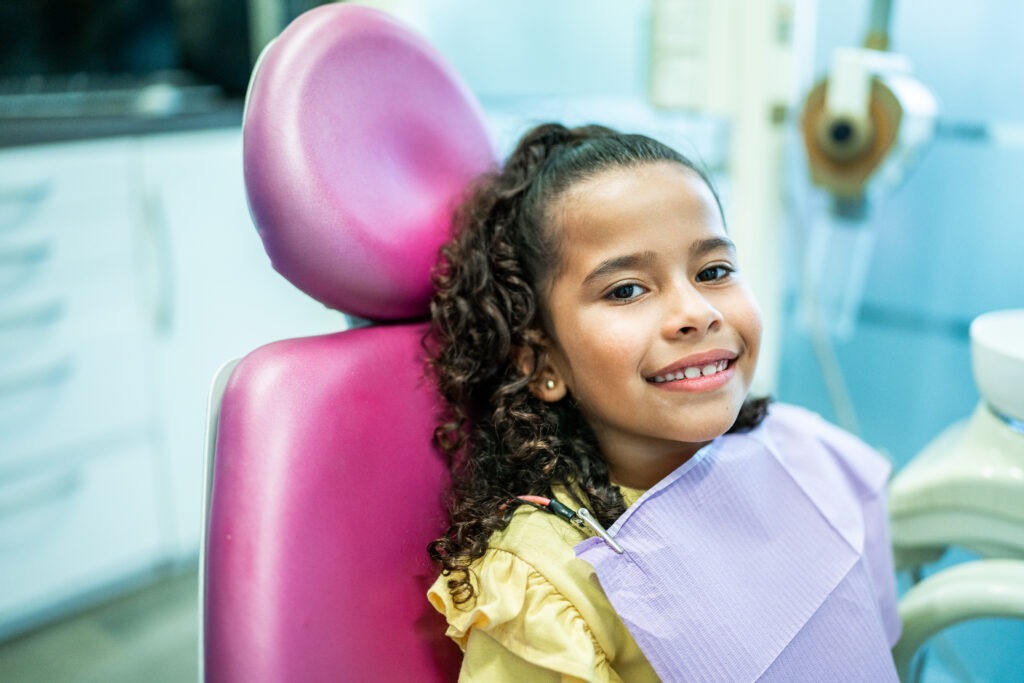When you see a newborn baby in the wild, they’re probably sleeping with a pacifier in their mouth (alternatively, they may be screaming; it’s usually one or the other in the very beginning). The American Academy of Pediatrics states that using a pacifier or thumbsucking beyond 18 months can begin to affect dental health. Here at McClaran Orthodontics in Nolensville and surrounding areas, we want to give you a rundown on exactly how pacifiers and thumbsucking affect kids’ smiles!
Why Do Children Do This?
Before covering the impact these common habits can have over time, let’s talk about why they happen in the first place!
- It’s A Natural Reflex: Practically all infants will use their thumbs or fingers to self-soothe and relax, particularly if they’re stressed or fatigued. It can additionally be a source of emotional comfort if they are anxious.
- Teething/Oral Stimulation: Pressure on the gums from sucking on a thumb or a pacifier can help with the unfamiliar pain of new teeth erupting. Babies also naturally need oral stimulation, which can be satisfied by either of these behaviors.
- Sleep Aid: Sometimes, the use of a pacifier or sucking on a thumb helps kids fall asleep more easily and stay asleep longer (sometimes!), and can be implemented as part of a bedtime routine.
When It Can Become An Issue
These habits normally alleviate over time naturally. But sometimes they persist, and that’s where developing teeth can start to be impacted. It’s a particularly serious issue when it interferes with the eruption of adult teeth around age six or seven. You will usually need a professional like Dr. McClaran to intervene at this point!

Consequences To Chew On
If these habits continue past a certain point, you should be aware of how your kids’ dental development can be altered. It can affect the development of the mouth itself and the alignment of teeth. Let’s take a closer look:
- Malocclusion: This is a fancy word for misalignment of teeth. Teeth can be pushed or pulled out of their natural positions and patterns of growth due to this additional pressure. There are various types of malocclusion:
-
-
- An open bite occurs when the upper and lower front teeth fail to make contact when a child bites down. This can cause difficulty biting, chewing, and speaking.
- Overbites happen when the upper front teeth overlap the lower front teeth. This can lead to potential issues with the alignment of the jaws and may contribute to an increased risk of trauma to the front teeth in accidents, such as during sports.
-
-
-
- The opposite of an overbite is an underbite; merely the same condition reversed. It affects jaw alignment and facial aesthetics.
- A crossbite is when the upper teeth fit inside the lower teeth, as opposed to the other way around. This can impact how the upper and lower jaws interact with one another.
-
- Protruding Front Teeth: This is probably one of the most common side effects of these childhood behaviors. When pressure is exerted on the front teeth, they can start to protrude outward due to the suction motion. A child’s appearance can be altered, and as with an overbite, it can make them more vulnerable to certain injuries.
- Palatal Narrowing: This is when the upper jaw or palette narrows due to sustained pressure. It can lead to crossbites and make for trouble when it’s time for adult teeth to erupt.
- Speech Impediments: Speech development can be one of the most outwardly obvious impacts of thumbsucking or pacifier use in a child. They can manifest in lisping or issues with the pronunciation of certain sounds, leading to treatment like speech therapy.
- Emotional and Social Impact: If your child is of age to attend school, the effects of these practices can go beyond physical issues. Self-esteem and social interaction can be directly affected, as these children might be more prone to bullying or teasing, which leads to self-consciousness.
Regarding all of these effects, there is not always a consistent formula for how kids are affected. The intensity, frequency, and duration of their habits, as well as skeletal and dental development, can contribute to overall consequences. The key is early interception; when you recognize patterns of behavior in your child, it’s vital to contact an orthodontic practice like ours to ensure issues don’t worsen.
How We Can Help
- Changing Behavior: Dr. McClaran is a parent herself and can work with other parents to inform their children about why it’s important to correct these behaviors, implementing positive reinforcement when they don’t do it (i.e., rewards or praise).
- Tools That Help: Kids can be given things like thumb guards or bitter nail polish to help provide a barrier to their habit.
- Monitoring: We can help observe how a child is doing over time with regular check-ups, watching especially for any relapsing behavior or changes to their orthodontic health—and, of course, provide any treatments they may need!
We Can Make Oral Health Child’s Play!
If your kids are dealing with extensive issues of thumbsucking or pacifier use, it’s important to remember that professionals like Dr. McClaran are here to help and that you don’t have to deal with it on your own! Please don’t hesitate to reach out to us if you’re in the Nolensville area.

